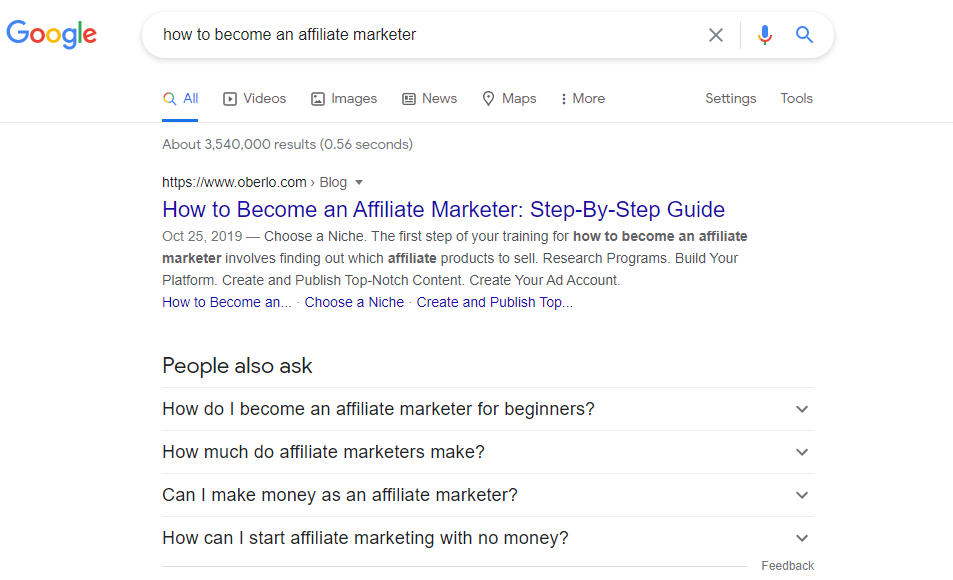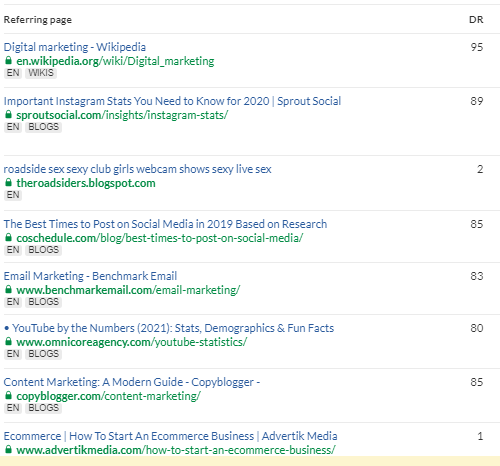By Matt Diggity
If you’re running a business, guest blogging should be part of your marketing strategy. With guest posting, you get to promote your brand and reap other benefits that will help your company succeed.
Guest posting, however, is not just about writing quality content. For your guest posting campaign to be effective, you need to find the right websites to get your content published and know how to target them. We’ll discuss how you can find those sites in this article.
But first, why is guest posting important?
Why Is Guest Blogging Important?
When you guest blog, you don’t just promote your brand to multiple audiences. You also attract qualified leads to your website when they search for you after reading your article or click on your backlinks. Those leads can become paying customers.
When you write for multiple websites about certain topics in your niche, you boost your authority in that niche. People end up seeing you as a credible source for niche-specific information. This means that when you make a value proposition, they’ll be more receptive.
And then there’s the SEO benefit. When authoritative sites publish guest posts with your backlinks, Google sees that as votes of confidence for your content. The result? You rank better on Google search engine results pages. That makes you more discoverable and translates to more website traffic.
In other words, guest blogging can help you in many ways! The key is to know how to do it right.
5 Ways to Find Prospects for Your Next Guest Blog
Now that you’re convinced about the benefits of guest blogging, let’s look at where you should look for prospective sites for your guest posts. Regardless of where you look, make sure that the websites you choose are in your niche. The goal is to reach people who will want to purchase your product. You can’t do that if your guest posts are published on irrelevant sites.
With that said, let’s dive in!
1. Create a List of Websites Using Keyword Research
The easiest way to search for prospects is to perform Google searches for target keywords. Those keywords should be relevant to your niche. For example, if you’re selling affiliate marketing software, you’d want to get your guest post published on affiliate marketing websites. So you might search for affiliate networks, affiliate marketing tips, and so on.
Then combine each of those keywords with one of the following search terms in the Google search field:
- + “guest blog”
- + “contribute to our blog”
- + “write for us”
- + “contributing writer”
- + “submit blog post”
- + “contributor guidelines”
- + “guest blogging guidelines”
- + “become a guest blogger”
- + “guest author”
- + “contribute guest post”
So an example of a search query should look something like this:
You’ll get a list of websites you could guest post for. Make sure each website meets your criteria of an authoritative site. In my case, I look for a domain authority (DA) of at least 50, website traffic of at least 4,000 visitors per month, and a trust flow of 20+.
Domain authority is a website ranking metric that predicts how likely a site is to rank in a Google search. Each site gets a DA score from 0 to 100, and you can use Moz’s free Domain Analysis tool to check any website’s DA.
The higher the metrics of the website, the better. One backlink from a DA 90 site is better than five from lower performing sites and will provide far more SEO benefits.
2. Find Out Where Your Competitors Are Posting
You’re not the only one running a guest posting campaign. Your competitors are most likely running them, too. It’s always a good idea to know where your competitors are guest posting. You want to outrank them so people will go to your website and be drawn into your sales funnel rather than someone else’s.
To determine who your competitors are, create a list of websites that rank for a lot of keywords in your niche. For example, if I search “how to become an affiliate marketer”, this is what I get:

The site Oberlo is also among the top SERP results when I search for other keywords related to affiliate marketing. That might mean Oberlo is a competitor.
Get the homepage URL and pop it into Ahrefs to get a list of the site’s backlinks. This is what I get:

From that list, remove the ones you can’t possibly guest post for, like Wikipedia, and sanitize the list based on the website metrics you’re looking for. Voilà! You have your final list of websites for your campaign.
3. Tap into Twitter
Twitter is a goldmine of niche influencers and websites you can tap for your guest posting campaign. All you need to do is know how to look for them and create a good impression. To begin with, you can do a quick hashtag search of your keywords to find out who has been tweeting about your niche.

Scroll down and make a list of the websites and business names that are posting relevant content. Visit each site to ensure they accept guest posts and to check them against your specified metrics.
It’s also a good idea to comment on the tweets of the websites you’d like to guest post for. If you contribute positively, they’ll get to know your name and form a good opinion of you. So when you reach out to them for a guest post opportunity, they will remember you and will give you a shot.
4. Join Guest Blogging Communities
There are guest blogging communities you can join to find prospects for your next guest post. Tomoson, for example, connects brands and bloggers who have built a name for themselves. All you need to do is create a profile on the platform, choose your niche, and leave a link to your website. That’s it!
Once you’ve done that, you’ll get access to a list of blogs in your niche you can guest post for. You might even get a request from another company for a collaboration.
Help a Reporter Out (HARO) is another community you can join. The platform connects around 55,000 content creators and journalists with over 800,000 sources.

Once you set up your profile, HARO will send you emails based on the information you gave. So if you specified you wanted to contribute, HARO will send you a list of topics you can write about once your application is approved.
There can be a high level of competition on the platform. Many renowned content creators are on HARO. So when you earn a guest post opportunity, you’ll feel like you really hit the jackpot.
5. Follow Prolific Guest Bloggers
If you know the prolific guest bloggers in your industry (and you should!), follow their social media accounts. This can give you an idea of where they frequently guest post since they will probably promote their work on social media once it is published.
You can also do a quick Google search of the name of the prolific blogger and phrases like “guest post by” to get a list of their guest posts and the websites where they have been published.
If the guest blogger has their own blog, then leave comments on that blog and contribute positively to the conversation. This means you might even be able to reach out for a guest post spot on their blog later on.
The Bottom Line
Guest posting is critical to the success of your brand. With guest posting, you can promote your brand to the right audiences at the right time. You can also boost your online authority and reap SEO benefits.
But for your guest posting campaign to work, you need to be strategic. That means you need to choose the right topics to write about, and pick the right websites to write for. You’ll also need to scale your guest posting over time so you can continuously reap those benefits.
In this article, I gave you five ways you can find those prospects for guest blogging. Now it’s over to you. Get started now, and your brand will soon be well on its way to success!
Written by Matt Diggity
Matt Diggity is a search engine optimization expert and the founder and CEO of Diggity Marketing, The Search Initiative, Authority Builders, and LeadSpring LLC. He is also the host of the Chiang Mai SEO Conference.




![Yes, B2B Websites Can Use Personalization Too [Here’s How]](https://mdvirtue.com/wp-content/uploads/2022/02/Yes-B2B-Websites-Can-Use-Personalization-Too-Heres-How-400x250.jpeg)

0 Comments